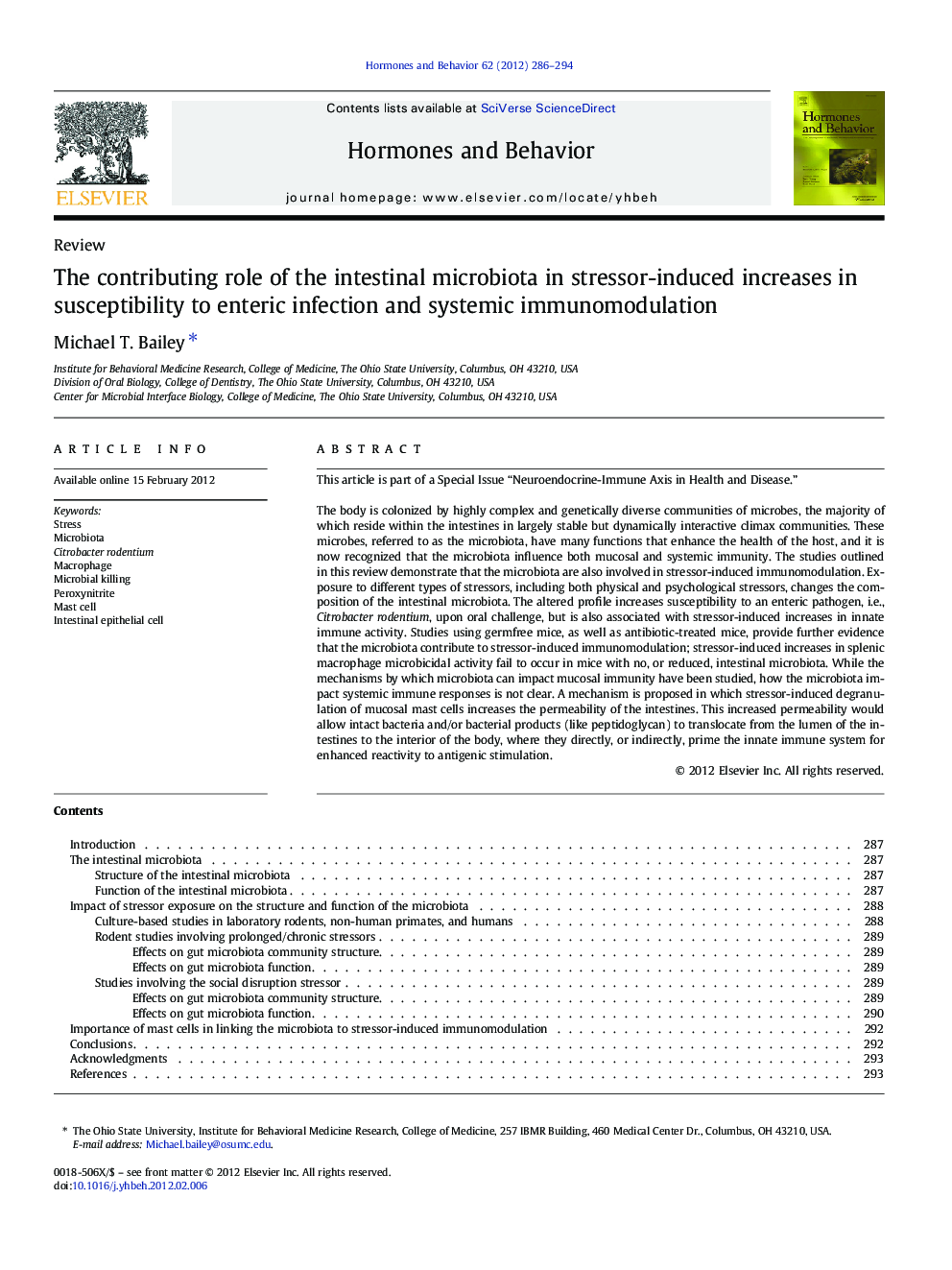| کد مقاله | کد نشریه | سال انتشار | مقاله انگلیسی | نسخه تمام متن |
|---|---|---|---|---|
| 323105 | 540502 | 2012 | 9 صفحه PDF | دانلود رایگان |

This article is part of a Special Issue “Neuroendocrine-Immune Axis in Health and Disease.”The body is colonized by highly complex and genetically diverse communities of microbes, the majority of which reside within the intestines in largely stable but dynamically interactive climax communities. These microbes, referred to as the microbiota, have many functions that enhance the health of the host, and it is now recognized that the microbiota influence both mucosal and systemic immunity. The studies outlined in this review demonstrate that the microbiota are also involved in stressor-induced immunomodulation. Exposure to different types of stressors, including both physical and psychological stressors, changes the composition of the intestinal microbiota. The altered profile increases susceptibility to an enteric pathogen, i.e., Citrobacter rodentium, upon oral challenge, but is also associated with stressor-induced increases in innate immune activity. Studies using germfree mice, as well as antibiotic-treated mice, provide further evidence that the microbiota contribute to stressor-induced immunomodulation; stressor-induced increases in splenic macrophage microbicidal activity fail to occur in mice with no, or reduced, intestinal microbiota. While the mechanisms by which microbiota can impact mucosal immunity have been studied, how the microbiota impact systemic immune responses is not clear. A mechanism is proposed in which stressor-induced degranulation of mucosal mast cells increases the permeability of the intestines. This increased permeability would allow intact bacteria and/or bacterial products (like peptidoglycan) to translocate from the lumen of the intestines to the interior of the body, where they directly, or indirectly, prime the innate immune system for enhanced reactivity to antigenic stimulation.
► The body is composed of communities of microbes called the microbiota.
► The intestinal microbiota influence susceptibility to infection and immune system functioning.
► Stressor exposure alters the community structure of intestinal microbiota.
► Stressor-induced alterations in the microbiota affect susceptibility to colonic infection.
► The microbiota are key players in stressor-induced immune-enhancement.
Journal: Hormones and Behavior - Volume 62, Issue 3, August 2012, Pages 286–294